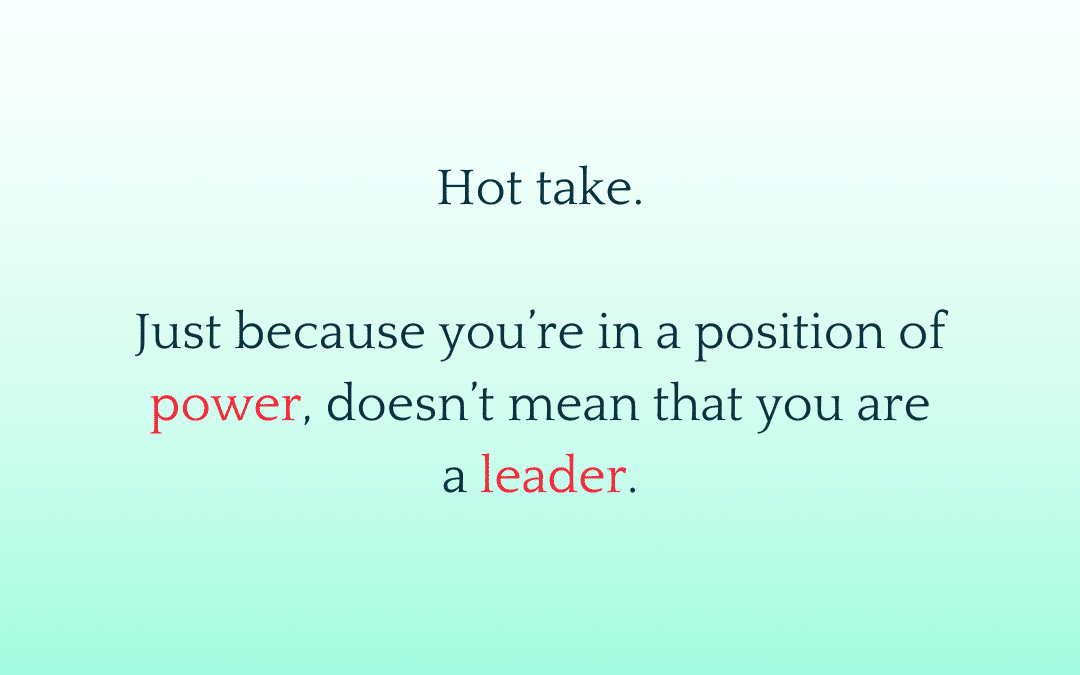
Hot Take: Leadership Is Not The Same Thing As Power
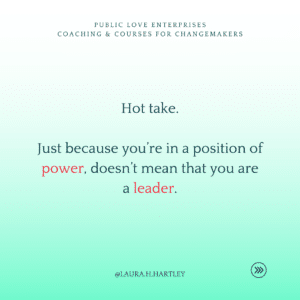
Just because you’re in a position of power, doesn’t mean that you are a leader.
A common misconception we hold is that leadership means the same thing as being in a position of seniority or power.
You know – managers in organisations, or politicians, or the person up the front with the mic.
A vast swath of the internet will call these ‘positions of leadership’ when really they are just positions of power… and I think we’ve all known people in these positions that we wouldn’t call leaders.
We also confuse leadership with control.
With certainty.
That leaders should know what they are doing, and where they are going at all times.
That there’s a binary of leaders and followers and we should all want leaders, or want to be leaders.
That what we need in this time must be more leaders.
But what if our whole story of leadership in this culture was wrong?
What if leadership was about visioning and seeding the world we want?
What if leadership was a co-creative field? What if it transcended the binary, and required participation and consent?
What if the qualities of leadership were divergent?
What if leadership required relinquishing control; surrendering?
What if leadership required the willingness to be lost?
The way I define leadership is this: the ability to follow an inner compass, with wisdom and courage, for the shared benefit of the whole.
I keep this definition intentionally broad, because in an uncertain, destabilising world, we need a whole new understanding of leadership.
We need a leadership that is generative.
Regenerative.
Curious.
And willing to walk in the spaces we haven’t been yet.
And that’s not going to look anything like what comes up on Google.
Want to explore how you can embody regenerative leadership?
Laura x

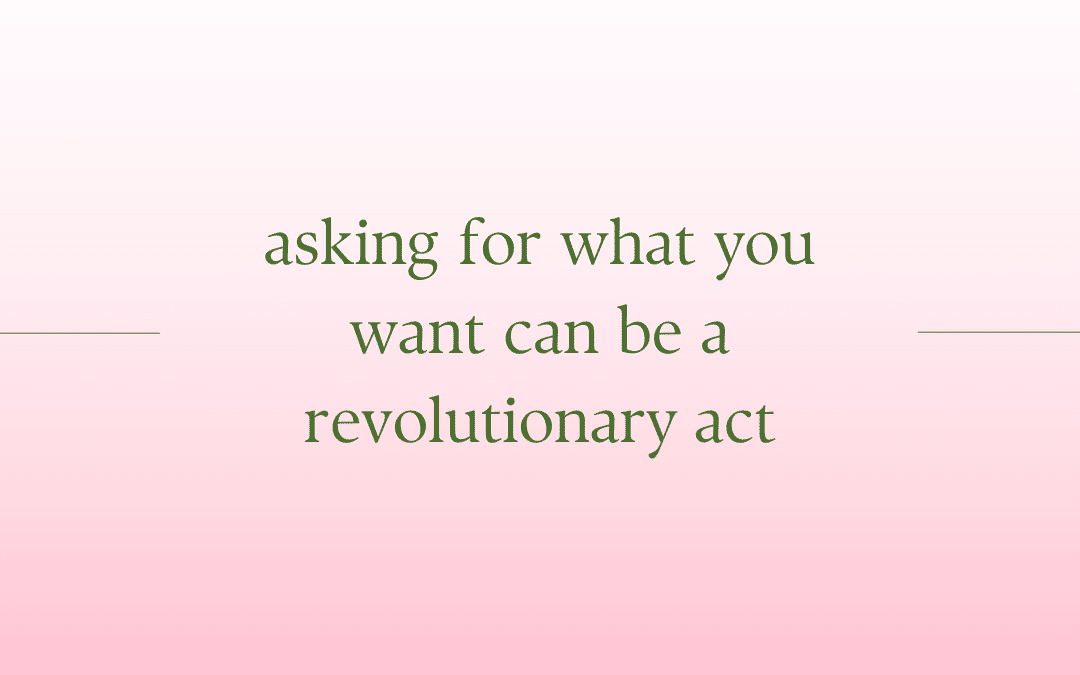
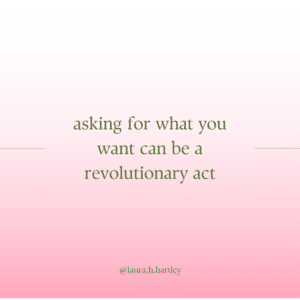 How old were you when you stopped asking for what you want?
How old were you when you stopped asking for what you want?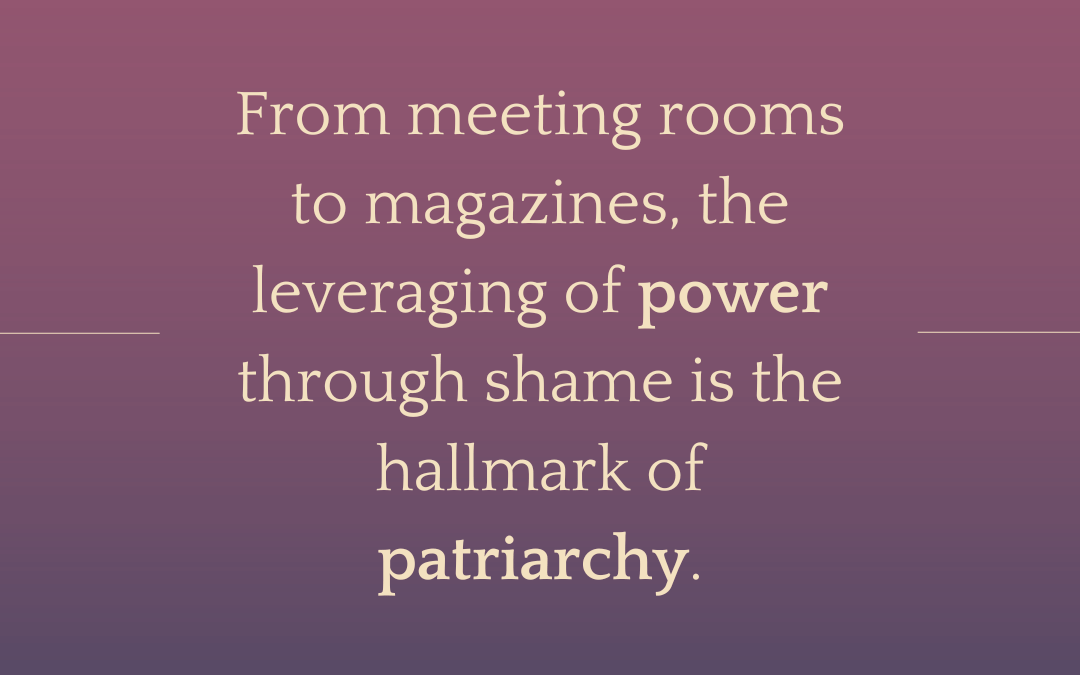
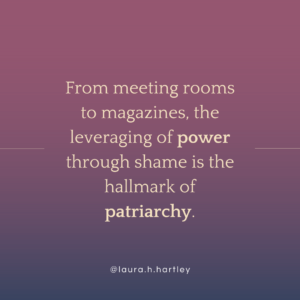 One of the most valuable skills we can cultivate as changemakers is the ability to read a room for power.
One of the most valuable skills we can cultivate as changemakers is the ability to read a room for power.